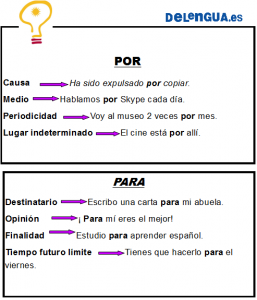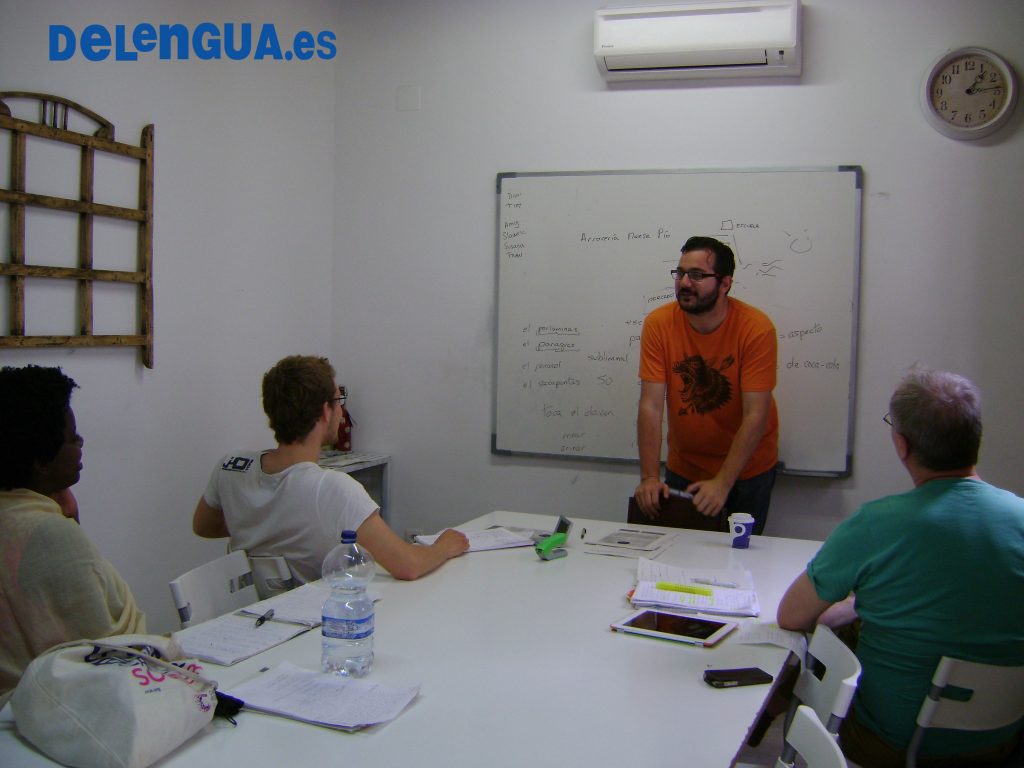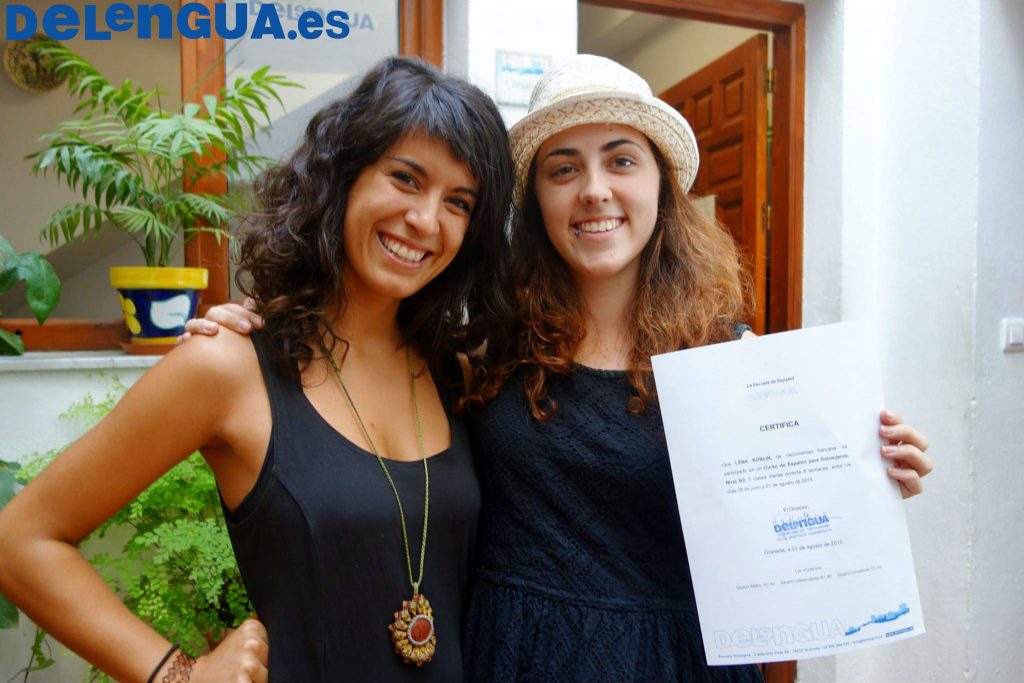
| Español | English | |
|---|---|---|
| Por y para son dos preposiciones españolas que asustan a muchos estudiantes de la lengua española. Aunque son parecidas, tienen usos muy distintos. Para expresa el destino en cuanto a espacio o tiempo, motivo, objeto, comparación, empleo o destinatario intentado. Como en las situaciones siguientes: El tren para Madrid. Necesito dinero para ir al cine. Compré el regalo para ti. Miguel trabaja para su padre, para mañana, para esta tarde, para el fin de semana. Mientras por hace referencia a la hora del día, causa, contrario, intercambio, lugar en general, recorrido o substitución. Eso quiere decir que se encuentra por ejemplo en las situaciones siguientes: ¿Por qué lo haces? La escuela está por aquí. Paseamos por la calle. Lo hemos hecho por ti… y también refiriendo al tiempo: por la mañana, por la tarde. Por se utiliza especialmente para la formación de la Pasiva. Por ejemplo : España fue conquistada por los árabes. América fue descubierta por Cristobal Colón.El uso de las preposiciones en la lengua española está bien arreglado y para los estudiantes del español hay reglas definidas para aprender. Al principio sólo es cuestión de memorización y después de algún tiempo el uso viene automáticamente. Para estudiar el uso de por y para, la Escuela Delengua en Granada te ofrece material de aprendizaje gratuito, y eso directamente en el Internet: http://www.delengua.es/spanish-courses-spain/free-spanish-resources.html. Así puedes estudiar español cómodo en casa. Si prefieres estudiar el español donde se habla, ¡ven a Granada y apúntate a un curso de español en la Escuela Delengua! |
|
Por and para, two Spanish prepositions of which lots of Spanish students are afraid of. Although there are so similar, their use is very different.
With para you can explain destination of space or time, purpose, motive, comparison, employment or intendend recipient. For example you use para in situations like: El tren para Madrid/ The train to Madrid. Necesito dinero para ir al cine/ I need money to go to the cinema. Compré el regalo para ti/ I bought the present for you. Miguel trabaja para su padre/ Miguel works for his father… like as well: para mañana/ until tomorrow, para esta tarde/ until this afternoon, para el fin de semana/ until the weekend. The use of the prepositions in the Spanish language is well-ordered and for Spanish students there are defined norms to learn them. First of all it’s just a question of memorizing and later the use will be fixed to the memory. So you can study Spanish comfortly from home and furthermore improve your Spanish level. If you prefer to study Spanish where it’s spoken: Come to Granada and inscribe you for a Spanish Porgramme in the language school Escuela Delengua! |














